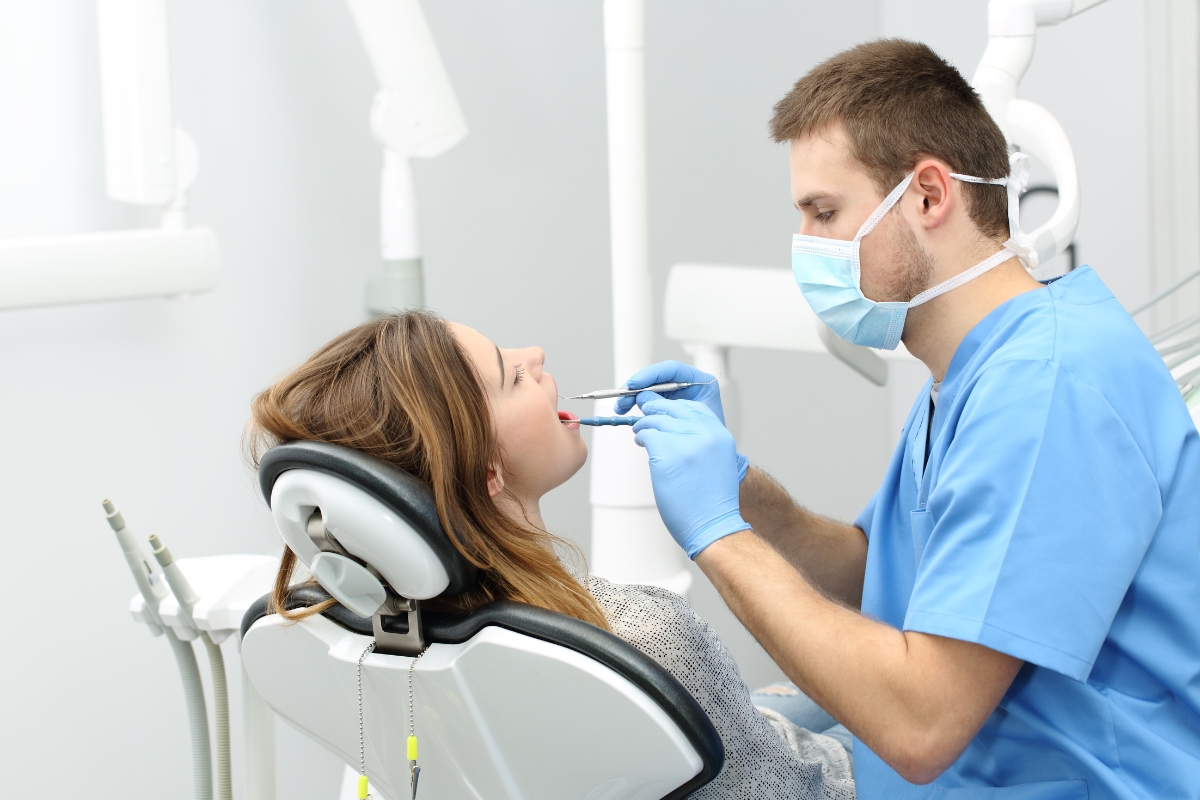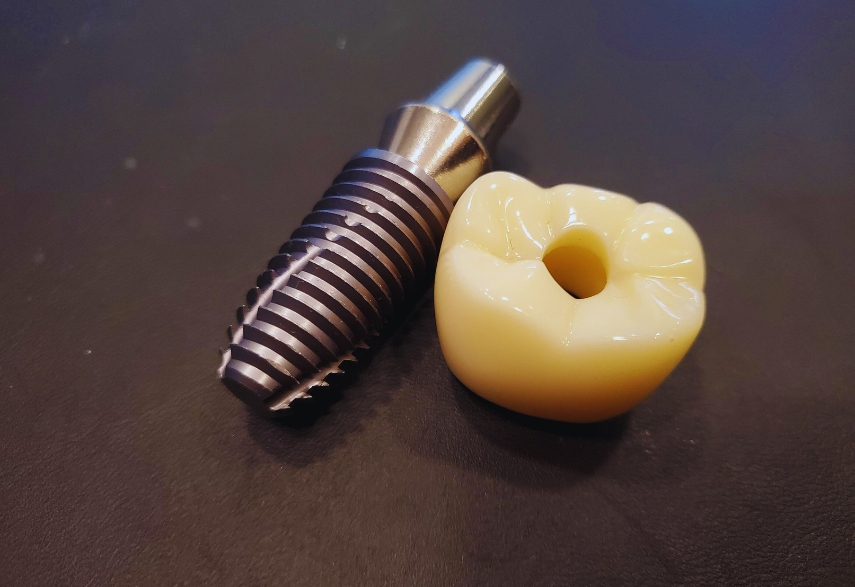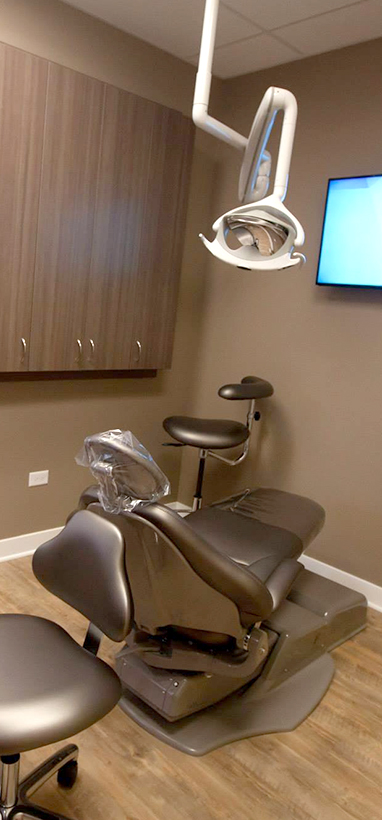1516 Legacy Cir, Naperville, IL 60563
How Can You Eat With Dental Implants

Dental implants have revolutionized the way people approach dental health, offering a permanent solution to missing teeth. Whether you’ve just received your implants or are considering getting them, understanding how to eat with dental implants is crucial for a successful transition and long-term satisfaction. This comprehensive guide will provide practical tips and strategies to help you enjoy your favorite foods while ensuring the longevity of your dental implants.
Introduction: Embracing a New Way to Eat
Receiving dental implants is a significant step toward restoring your smile and improving your overall oral health. Unlike dentures, which can slip and cause discomfort, dental implants are designed to function like natural teeth, providing a stable and secure foundation for chewing and speaking. However, adjusting to dental implants requires some initial care and consideration. This guide aims to provide you with valuable insights and actionable tips on how to eat with dental implants, ensuring a smooth transition and a return to your normal eating habits.
Understanding the Adjustment Period
After the placement of dental implants, there is an adjustment period during which your mouth needs to heal and adapt. This period is critical for the success of your implants and requires careful attention to your eating habits.
Immediate Post-Surgery Diet
In the first few days following your dental implant surgery, it’s essential to stick to a soft-food diet to avoid putting excessive pressure on the new implants. Foods like yogurt, mashed potatoes, scrambled eggs, and smoothies are excellent choices during this initial phase. Avoid hot, spicy, or crunchy foods, as these can irritate the surgical site and hinder the healing process.
Gradual Introduction of Solid Foods
As your mouth begins to heal, you can gradually introduce solid foods back into your diet. Start with softer foods that require minimal chewing, such as steamed vegetables, tender fish, and well-cooked pasta. Chew slowly and on both sides of your mouth to distribute the pressure evenly and prevent any strain on the implants.
Long-Term Eating Habits with Dental Implants
Once the healing process is complete, you can enjoy a wide variety of foods. However, maintaining good eating habits will help ensure the longevity of your dental implants and your overall oral health.
Chewing Techniques
One of the key adjustments you’ll need to make is your chewing technique. Dental implants provide a stable chewing surface, but it’s important to chew slowly and thoroughly. This not only aids in digestion but also reduces the risk of damaging your implants. Make a conscious effort to use both sides of your mouth while chewing, as this helps distribute the pressure evenly and prevents overloading any single implant.
Avoiding Hard and Sticky Foods
While dental implants are durable, they are not indestructible. Hard foods like nuts, hard candies, and ice can exert excessive pressure on the implants and the surrounding bone structure. Similarly, sticky foods like caramel and chewing gum can get stuck to the implants, making them difficult to clean and increasing the risk of plaque buildup. Opt for softer alternatives and be mindful of your food choices to protect your implants.
Practical Tips for Eating with Dental Implants
Here are some practical tips to help you navigate your new eating routine with dental implants:
Cut Food into Smaller Pieces
Cutting your food into smaller, manageable pieces can make chewing easier and reduce the risk of putting too much pressure on your implants. This is especially helpful for tougher meats and fibrous vegetables. By taking smaller bites, you can enjoy your meals without straining your implants.
Stay Hydrated
Drinking plenty of water is essential for maintaining good oral health, especially when you have dental implants. Water helps rinse away food particles and bacteria, reducing the risk of infection and promoting a healthy environment for your implants. Make it a habit to drink water with and between meals.
Use Appropriate Utensils
Using the right utensils can make eating with dental implants more comfortable. Opt for smaller, more manageable utensils that allow you to control the size of your bites and the pressure you apply while eating. This simple adjustment can significantly improve your eating experience.
The Role of Regular Dental Check-Ups
Regular visits to your dentist play a crucial role in the success of your dental implants. Dental professionals will monitor the health of your implants and the surrounding tissues, ensuring that any potential issues are addressed promptly.
Professional Cleaning
Even with meticulous home care, it’s essential to have your implants professionally cleaned by your dentist. Professional cleanings help remove plaque and tartar buildup that can lead to gum disease and implant failure. Schedule regular dental appointments to keep your implants and your mouth in optimal condition.
Monitoring Implant Health
Your dentist will also check the stability and integrity of your dental implants during routine check-ups. They will assess the bone density around the implants and ensure that there are no signs of infection or complications. Regular monitoring allows for early detection of any issues, making it easier to address them before they become serious problems.
Embracing a Balanced Diet
Eating a balanced diet is important for your overall health and the health of your dental implants. A diet rich in vitamins and minerals supports the healing process and helps maintain strong bones and healthy gums.
Foods Rich in Calcium and Vitamin D
Calcium and Vitamin D are essential for maintaining strong bones, including the bone structure supporting your dental implants. Incorporate dairy products, leafy greens, and fortified foods into your diet to ensure you’re getting enough of these vital nutrients.
Incorporating Fiber
Fiber-rich foods promote good digestion and overall health. Fruits, vegetables, and whole grains are excellent sources of fiber and should be included in your diet. These foods not only support your general well-being but also contribute to a healthy oral environment.
Conclusion: Enjoying Life with Dental Implants
Adjusting to life with dental implants involves some initial changes, but with the right approach, you can enjoy all your favorite foods and maintain excellent oral health. By following the practical tips and strategies outlined in this guide, you can ensure the longevity of your dental implants and enjoy a fulfilling, comfortable eating experience.
Remember, the success of your dental implants depends on how well you care for them. Chew slowly, choose your foods wisely, and stay hydrated. Regular dental check-ups and professional cleanings are essential to monitor the health of your implants and address any potential issues early on.
If you’re considering dental implants or have recently received them, don’t hesitate to visit your dentist for personalized advice and guidance. Schedule your appointment today to ensure your dental implants remain in top condition, allowing you to smile confidently and enjoy every meal without worry.










